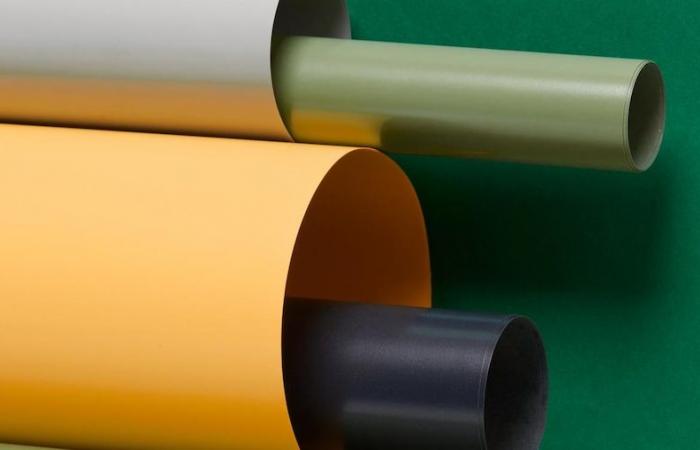Listen to the audio version of the article
An innovative material that represents a paradigm shift in the heat transfer materials sector (used for applications on fabrics), offering a compostable alternative to traditional options. It was developed by Siser, a company founded in the 1970s in Vicenza. Heat transfers are sold through authorized distributors or resellers, both to a professional market (with end recipients other companies and artisans) and to authorized resellers who use e-commerce and marketplaces to reach the end customer. The prints – which are applied in the professional world through the use of heat presses, while in the home/hobbyist world an iron is enough – must be color-fast, irritation-proof if they come into contact with the skin, and must adapt to the fabric while keeping it soft.
Five years of study
The idea comes from the research and development laboratories of Siser, in collaboration with the University of Biotechnology of Padua, after five years of studies: it is called PureHT™ and is fundamentally different from conventional materials that can take up to 20 years to degrade into microplastics, causing pollution of water resources and soil, PureHT™ instead undergoes natural decomposition in just 6 months, without leaving harmful residues or negatively impacting the environment at the end of its life cycle. The compostability of the product complies with US and European standards according to BPI and DIN CERTCO certifications. The basis of PureHT™ technology is a layering of different innovative materials that play a fundamental role in amplifying the performance and stability of the product. These layers collectively contribute to a strong adhesion to the base fabric and the creation of various color shades.
Resistance and sustainability
Siser® has succeeded in the challenge of making each layer completely compostable by modifying the chemical structure of the materials to make them attractive to microorganisms. “Imagine traditional heat transfer materials as a high-speed train, straight and uniform. Microorganisms struggle to attach themselves. The architecture of PureHT™, on the other hand, resembles that of a regional train, made up of carriages. Microorganisms are able to bite the first carriage and move along the entire chain, breaking it down, digesting it and transforming it into organic matter”, explains Alessandro Canacci, Head of Research and Development at Siser®. PureHT™ allows, in addition to compostability, recycling, offering flexible disposal options. The product also stands out for its mechanical resistance and durability, offering reliable performance for a wide range of applications.
The company
“We have made it compostable without compromising its technical durability; in fact, the product can be stressed and handled without losing its shape or getting damaged”, continues Canacci. And Ciro Visone, CEO: “This is the latest step in our journey towards the development of next-generation products. Previous steps include recyclable polyurethanes and water-based resins. In recent years, our Research and Development department, together with our partners and suppliers, has invested heavily in reorienting the future trajectory of our industry, aware and motivated by the many challenges that await us”. Having validated the structural integrity of the product, the Siser® team will now focus on experimenting with colors, to expand the range of available shades. The company has 78 employees: total turnover for the year ended 30/6/2024 is 40 million, of which 87.7% developed through export.






